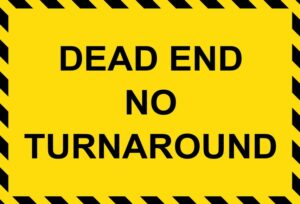
Yes … you read that correctly. If you are involuntarily committed for mental health treatment, appeal that commitment, and win said appeal, it does NOT remove the prohibition the initial commitment placed upon your right to purchase, possess, and transport firearms.
How Did We Get Here?
In 2013, in the case of Paugh v. Henrico Area Mental Health 286 Va. 85 (Va. 2013), the Virginia Supreme Court ruled that the statutory framework requires a circuit court handling an appeal of an involuntary commitment to determine whether the appellant meets the commitment criteria on the date of the appeals hearing rather than reevaluating the evidence of the appellant’s mental status at the time of the commitment.
What this effectively meant was that almost all involuntary commitments could conceivably be overturned on appeal (and therefore gun rights would be restored) if the appellant had recovered sufficiently from the mental health crisis that lead to the initial commitment by the time the appeals hearing was held.
So What Happened Next?
In 2020, the Democrat-controlled General Assembly passed S684 to address the issue. However, they did not correct the errors in the statutory framework regarding the appeals process that required the ruling in the Paugh case. Instead, they modified § 18.2-308.1:3(A), which governs the prohibition that attaches when a person is involuntarily committed to make the results of any appeal immaterial.
They changed the relevant section from:
A. It shall be unlawful for any person (i) involuntarily admitted to a facility or ordered to mandatory outpatient treatment pursuant to § 19.2-169.2, (ii) involuntarily admitted to a facility or ordered to mandatory outpatient treatment as the result of a commitment hearing pursuant to Article 5 (§ 37.2-814 et seq.) of Chapter 8 of Title 37.2, (iii) involuntarily admitted to a facility or ordered to mandatory outpatient treatment as a minor 14 years of age or older as the result of a commitment hearing pursuant to Article 16 (§ 16.1-335 et seq.) of Chapter 11 of Title 16.1
To:
A. It shall be unlawful for any person (i) involuntarily admitted to a facility or ordered to mandatory outpatient treatment pursuant to § 19.2-169.2, (ii) involuntarily admitted to a facility or ordered to mandatory outpatient treatment as the result of a commitment hearing pursuant to Article 5 (§ 37.2-814 et seq.) of Chapter 8 of Title 37.2, notwithstanding the outcome of any appeal taken pursuant to § 37.2-821, (iii) involuntarily admitted to a facility or ordered to mandatory outpatient treatment as a minor 14 years of age or older as the result of a commitment hearing pursuant to Article 16 (§ 16.1-335 et seq.) of Chapter 11 of Title 16.1, notwithstanding the outcome of any appeal taken pursuant to § 16.1-345.6,
In other words, anyone who is involuntarily committed and wishes to have their firearms rights restored, regardless of the status of any subsequent appeal, must petition the court pursuant to § 18.2-308.1:3(B) to remove the prohibition.
One final note … the modification of the statute was silent as to how to handle those persons who had won appeals prior to the modification going into effect and who had therefore been removed from the mental health database maintained by the Virginia State Police. I do not believe that there will be any effort to re-add those persons to the prohibited list but anyone in such a position should be aware of the possibility.





